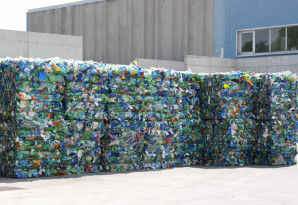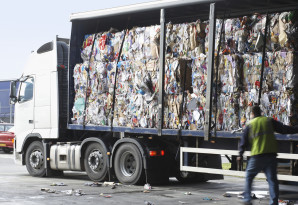Plastics recyclers in the UK have seen prices in their markets drop 20% since Christmas & 30% since November. This is in large part due to the steep drop in the price of oil meaning that recycled polymers are unable to compete on price with virgin polymers.
This article looks at the factors that affect plastic recycling prices including the current factor, oil prices.


Plastics Recycling Price Factors
The rate for recycled plastics in the UK is determined by five factors:
- Crude oil prices
- The global economy’s impact on demand for virgin plastics
- The Chinese economy
- The growth of industries intensively using plastics in goods
- Regulation
A sixth, seasonal variations, can be identified, but this is usually due to a combination of the other factors.
With crude oil prices dropping and a subsequent slackening in the price of virgin plastics as well as the global economy not really booming, these factors have hit UK prices.
Oil Prices
It appears that the oil boom is over.
From 2010 until mid-2014 oil prices had been pretty consistently at the $110 a barrel rate across the globe.
Since June 2014, prices have almost halved and were, in January 2015, below $50 per barrel, a price not seen since May 2009.
This price drop has been caused by weak demand relative to supply: economies weakened by the recession do not have the bouyant demand they once did, OPEC nations are refusing to cut production and US production has been increasing dramatically with the increased usage of fracking.
Virgin Material Prices
Virgin material prices have a significant effect on the price of recycled material. In 2008, the WRAP document noted:
“The markets for recovered plastics are still immature and small relative to the size of the market for virgin plastics. As a result, recovered plastics prices are not determined by production costs as one would expect in an efficient market. Instead, recovered plastics prices are pegged to the price of virgin plastics in the long run.”
The Chinese Economy
China is a huge market for recovered plastics. It is estimated that 70% by weight of UK recovered waste plastics were exported to China & Hong Kong in 2009 according to a report from Imperial College, London in 2012. This situation leaves UK export prices beholden to Chinese demand which is in part dictated by the strength of the Chinese economy. China’s economy is continuing to grow but there are signs that the days of double-digit growth are over: China’s GDP only grew in excess of 10% once between 2008 & 2012.
The UK Plastics Industry
There are some positive signs for plastics prices from the growth of the plastics industry which will increase the demand for virgin & recycled polymers. A report from Key Note said that the plastic packaging market would grow by 14.2% between 2014 & 2018.
The plastics Industry is one of the most significant in the UK with a value of £19bn per annum, generating £6.7bn of exports. Demand for plastic material was 4.8 million tonnes in 2011. This industry continues to grow and accounts for 7% of all UK manufacturing activity, greater than the automotive & pharmaceutical industries combined.
Regulation
The main impact that regulation has on the plastics industry is when it changes. Changes in regulation can make it easier or more difficult for companies to process plastic & it can increase or decrease the supply.
Regulation issues that can affect the price of plastic can include things like the government discussion on charging for carrier bags in supermarkets. With 8 billion plastic bags being used once in 2013, with discarded plastic bags causing littering and injury to marine wildlife, and with a significant waste of resources, the government have decided to impose a 5p charge on single-use carrier bags from October 2015. It is reasonable to expect that this will significantly reduce the demand for these plastic bags.
Seasonal Variations
Finally, plastics recyclers are aware of a number of seasonal factors that can affect plastics prices:
- At Christmas, it seems, all businesses want to clear their yards meaning that, for a few weeks, there is an increase in supply & prices drop
- Export prices often dip over Christmas and the Chinese New Year. Export markets are aware of the oversupply of material at Christmas & the manufacturing rush for the Christmas period is well and truly over. The demand for material begins to let off
This means that, as the New Year progresses, customers can expect prices to be more consistent & demand to increase. As we have seen, there are other more significant factors involved but, as we move into 2015, there are positives for those companies looking to sell their plastics for recycling.



